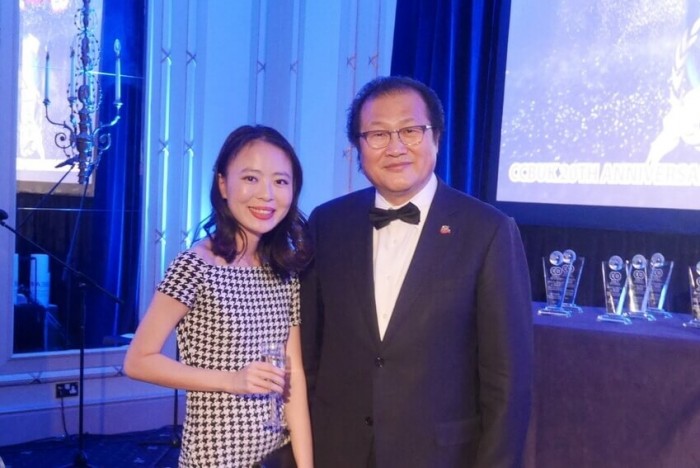According to data from the Higher Education Statistics Agency, while the amount of EU students in postgraduate education in the UK has slightly dropped over the past 3 years, the number of students from outside the EU has grown—from 138,955 students in 2015 to 144,575 in 2017.
For Jing Shang, it was Aston Business School’s global reputation that led her to leave her sales job in Shanghai for an MBA in Birmingham in the UK.
“Aston was my first choice,” Jing says. “It is famous for its triple-accreditation and rigorous academic atmosphere, but it also has a superb location in the second largest city in the UK.”
Indeed, Aston Business School was recently voted the UK university most favoured by Chinese students and families by Chinese tech giant Tencent, but it’s not only Chinese students choosing the school—Aston Business School's alumni network is made up of 30,000 graduates from more than 126 countries.
“During group work and other networking, I was very lucky to get to know some very intelligent people in my cohort, and business leaders,” Jing recalls. “I got a lot of great ideas from conversations with them about how to solve or improve specific business issues.”
Value in soft skills
One reason Jing decided to do an MBA was to expand her business network; “I wanted to get to know more talented people from the business industry,” she says. But there was another reason behind her MBA journey—one that involves a certain metaphorical glass ceiling.
After feeling inspired by Sheryl Sandberg’s TED talk (you might know her as the first woman to stand on Facebook’s board of directors), Jing decided an MBA would help her make a similar career leap.
“I aim to become a female leader in the future,” Jing affirms. “I strongly agree with Sheryl Sandberg that women can penetrate the C-level of corporate sectors by having an impact on the world.
“I knew that earning an MBA degree could give me the confidence and necessary theories in terms of leadership and management.”
In terms of the soft skills necessary to transform her career, Jing credits the MBA at Aston Business School with giving her the communication skills necessary for her to succeed in her future roles.
“During the course, we had a lot of group and individual presentation assignments to accelerate our communication and presentation skills,” Jing explains. “During the MBA I learnt how to deliver a successful and effective speech, and communication and the way you present is the key.”
On Aston’s MBA, students participate in a program designed to give them the ‘Aston Edge’ in their future careers. The Aston Edge is a professional development program and is focused on skills such as presenting, working in teams, critical thinking, and leadership.
For Jing, these skills are key to her success in her post-MBA role, as a retail management specialist for RDM Group in Shanghai, a company that owns a group of international designer retail outlets in China.
“The most crucial thing I learnt on my MBA was how to think and do things differently,” Jing says, “and I’m applying this mindset to my work right now.
“I am willing to challenge the status quo and think innovatively on how to improve my brands’ performance,” she adds.
Becoming a female leader
Now in Shanghai, Jing says that her MBA has had a profound impact on her career.
“After I joined my current company I found out that my team members all hold MBA degrees!” Jing says. “Obtaining an MBA degree definitely helped me to get this fantastic job—my boss thinks very highly of Aston Business School and firmly believes my MBA can bring value for the company in the long-run.”
As a key reason she decided to pursue an MBA, Jing says the opportunities afforded by Aston to network with other business leaders are also contributing to her success now. “I got so many precious opportunities to network with various industry leaders and share some key insights,” she recalls.
“As we know, the only constant is change, so we have to think and do things in an innovative and creative way to solve issues now,” Jing adds. “These industrial insights have certainly helped me to think more innovatively and creatively.”
In terms of her goal of becoming a female leader, Jing believes her MBA at Aston Business School is just the first step to achieving her dream.
“For me, earning an MBA degree is not only about the certificate, but it is more about adding value to my career,” she says. “I strongly believe that Aston MBA will definitely help me to transform to a future female leader.”







